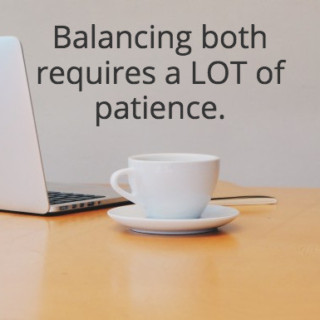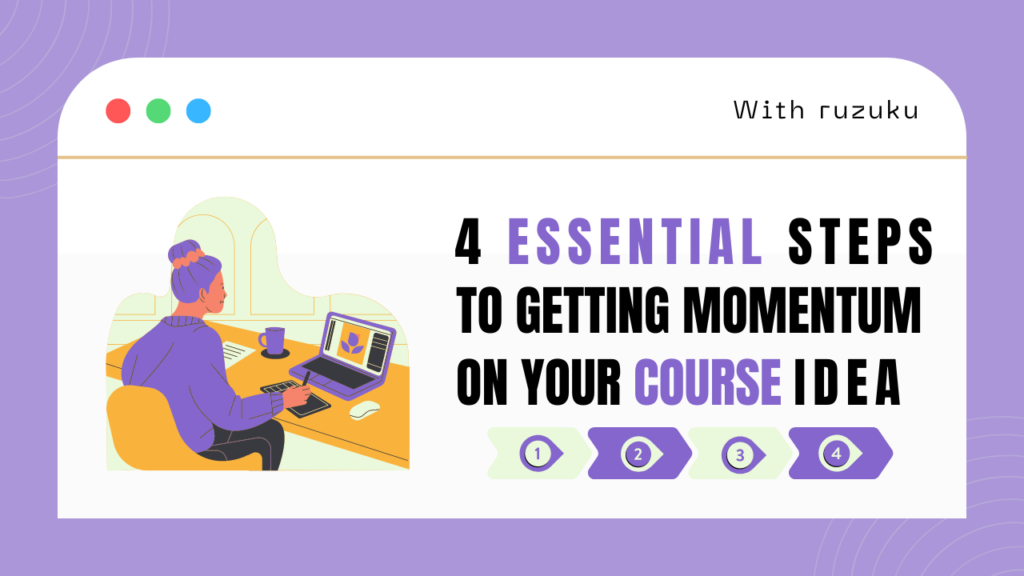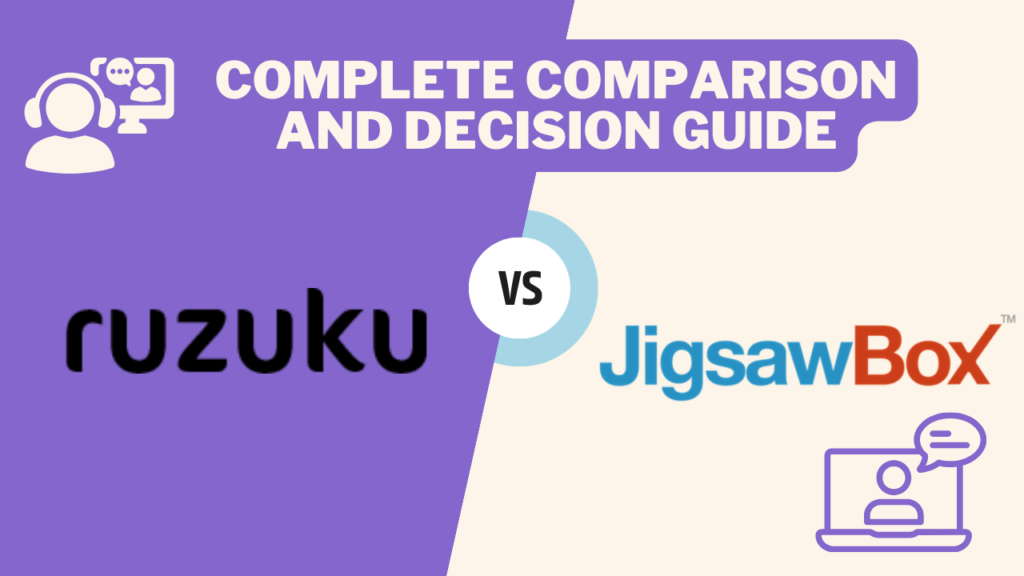Are you chasing that holy grail of entrepreneurs everywhere?
Are you trying to hold down a full time job (and collect the accompanying paycheck) while you actively build a successful side business?
If so, you might find that it’s more difficult than you thought it would be.
You’ve probably been frustrated that you’re not making faster progress.
You might even wonder sometimes whether you’re really cut out for entrepreneurship.
After all, even for those who do manage both, either your business or your job usually suffers. And let’s be honest — it’s usually your dreams that get left in the dust.
But what if you could manage to find that ever-elusive balance?
How would that impact your side business and your life?
Introducing… Maelisa
Maelisa Hall is a licensed clinical psychologist who saw something missing in her field of work and created a business to fill that need.
 She helps therapists to create rock solid documentation so that they can spend more time with their clients — and less time worrying about paperwork.
She helps therapists to create rock solid documentation so that they can spend more time with their clients — and less time worrying about paperwork.
And she’s finally achieved that elusive goal. She’s found a balance that allows her to run her business while also working full time.
Maelisa’s passion is training, so it’s only natural that she turned to online courses to round out her business offerings.
Today, we got the chance to check in with Maelisa and ask her how she manages to do it all.
Ruzuku: What motivated you to start teaching online courses?
Maelisa: I was working in a job where I provided regular training to employees in the company. That’s how I discovered that training was both a passion and talent of mine.
So I started a business providing training to therapists in private practice — people who otherwise wouldn’t have someone to go to on a regular basis for answers and support.
Teaching online was a no brainer, because it meant that I could serve more people and had very little overhead.
R: What goal did you set for your courses? What did you hope to achieve?
 M: I was hoping for 10 students with my first course (a high-end course with a high price point). Instead, I got four.
M: I was hoping for 10 students with my first course (a high-end course with a high price point). Instead, I got four.
The experience ended up being great, though, because I got to really test things out with a high touch group. That allowed me to make a lot of adjustments for the next group.
My main goal for each course is to provide unmatched value to the participants and receive great testimonials. It’s much less anxiety-provoking and more aligned with my values than identifying a specific monetary goal.
Where do you get your ideas for course topics?
I have a few different courses available, all variations of the same topic — I help therapists make their paperwork easy and simple. My ideas came from my newsletter subscribers. I paid attention to their needs: the things they asked me for and the help they requested over time.
My courses offer different levels of assistance, whether that’s a quick one-off training or a more in-depth 8-week program.
What’s the biggest challenge you face as you balance working full time with creating courses on the side?
By far, the biggest challenge is managing my time.
The beauty of online courses is that I can often arrange to work on things during off-hours, like evenings and weekends. I tend to be an optimistic person and while this is a great attribute, it means I frequently take on more than I can handle — which is something I continue to work on today!
What have you learned from that challenge?
I’ve changed my expectations of myself. That was a significant shift. I’ve discovered that having a full-time job and building a business on the side requires a LOT of patience.
 You can find plenty of stories of people who built online businesses quickly and quit their job in 6-12 months, but I can tell you from experience that’s not the case for most of us.
You can find plenty of stories of people who built online businesses quickly and quit their job in 6-12 months, but I can tell you from experience that’s not the case for most of us.
I had to let go of this pressure and allow myself to spend a little less time on my business, and more time on myself and my family.
I realized that spending every free moment on building a business that will allow me more freedom was actually creating a life I wasn’t enjoying!
While I do love working on my business (it’s so much fun to me, better than most hobbies), limiting my time to weekends and evenings has allowed me to focus on being healthier and enjoying my family NOW… rather than waiting for the eventual time that I quit the “day job.”
How has offering online courses impacted your overall business?
Running online courses is essential to my business model. It allows me to leverage my time and build on things I’ve already done.
I have one program that is a scheduled course and I’ve run it four times now. Each time the course has improved significantly and I’m able to add even more value because most of the work is already done!
How do you build relationships and connect with your students?
 It’s really important that I build supportive environments for my students, since paperwork is an area that frequently causes anxiety and feelings of shame for therapists.
It’s really important that I build supportive environments for my students, since paperwork is an area that frequently causes anxiety and feelings of shame for therapists.
I schedule group calls as part of the structured online program and also have a Facebook group that runs all year long.
For my one-off trainings, I hold random Q&A calls a couple times a year so students have an opportunity to interact with me one-on-one and feel like they’re getting even more value.
What are your plans for the future?
My next big project is a membership group that I plan to launch this fall.
I’ve found that many of my email subscribers prefer shorter, less intensive trainings. I think having a program where they can access a monthly, one-hour training will better suit their needs.
I love that I can also include “office hours” through Ruzuku’s webinar or tele-seminar feature.
I plan to rely on the membership area for communication with my students, rather than a Facebook group. There are benefits and drawbacks to both, but the reality is that not everyone is on Facebook – or wants to be – especially in my line of work. That creates a disconnect for some people in the program.
What are your top tips for our readers who are trying to master the side-biz course creation hustle and what are your takeaways for balancing both?
Here are a few of the most important things I’ve learned:
1. Be patient with yourself. Creating a course will take time, and you likely won’t get it done as well as you’d like, especially the first time around. Use the opportunity to test the market and let your course improve over time.
2. Build up a following first. I had about 350 people on my email list when I launched my first course and enrolled four people — which is exactly what any online business strategist will tell you to expect (about one or two percent). It takes patience, but sometimes it really is a numbers game. Focusing on building up an audience and really getting to know their needs will pay off big time in the end.
 3. Don’t let your business take over your life. Schedule breaks, schedule hours that you won’t work, and allow more time (a lot more time) to complete a project than you think it will take!
3. Don’t let your business take over your life. Schedule breaks, schedule hours that you won’t work, and allow more time (a lot more time) to complete a project than you think it will take!
4. Community is important. It’s really important to connect with a community of people who understand what you’re going through and can provide support and guidance when you need it. I joined an online program for business owners and it has been a huge help to me. I am still connected with many of the people I met through that program a couple years ago.
Where can readers find you online?
My online home is at my business website, where you can find all of my free resources, as well as my paid offerings. And if you happen to be a clinical health professional who struggles with too much paperwork, I offer a Private Practice Paperwork Crash Course you can check out for free!
Mastering the side-biz balancing act
Finding the time to work on your side business is tough, no doubt about it.
It takes patience and a lot of hard work, as you can see from Maelisa’s experience — and it’s easy to let the hustle take over your life.
But it is possible to find a reasonable middle ground.
Think about how much fun it will be to find that balance: a consistent paycheck AND a steadily growing side business, all without pulling your hair out due to overwhelm.
Imagine growing your course business consistently and enjoyably without the added stress of expectations you can never live up to.
Finally, picture the day when you reach your business goals with your health and sanity still (mostly) intact!
It may sound counterintuitive, but by relaxing into the process a little more, you should find that you make better, faster progress over the long run.
So take a look at your business goals and timelines and see where you can allow yourself a little bit more time to grow. Is there someplace you can cut yourself some slack? Some task that you suspect will take more time to complete?
Add a little patience to your hustle, and you too can balance working full time with growing your side business.
What are your takeaways from Maelisa’s course creation journey, and how can you apply them to your business? Let us know in the comments!





2 Responses
BeIng new to a Ruzuku I really appreciate hearing someone else’s story with promoting on line and gives me faith in what I am doing will eventually grow.
I am really loving being a part of this community .
That’s what we love to hear, Dawn – and we’re so happy that you’re here!